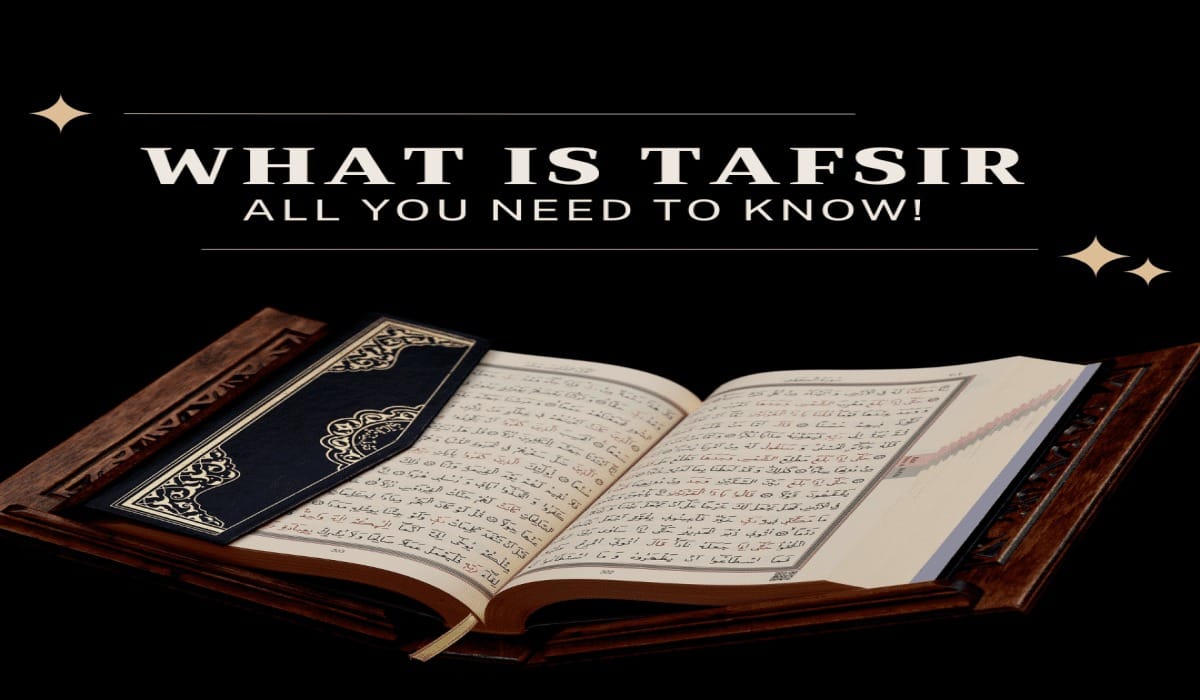What is Tafseer ul Quran and Why is it Important?
The Quran, Islam’s holy book, is much more than a collection of verses; it’s a guide for life. But how do we truly understand its depth and relevance in our lives? That’s where Tafseer ul Quran comes in—a detailed explanation and interpretation that unlocks the Quran’s profound wisdom. Let’s dive into what Tafseer ul Quran is and why it holds such immense importance.
Table of Contents
ToggleIntroduction: Understanding Tafseer ul Quran
Imagine receiving a letter from a loved one written in a language you barely understand. Wouldn’t you seek someone who can explain its meaning to you? This is akin to how Muslims approach the Quran. While the text is accessible, its profound messages require deeper interpretation—Tafseer ul Quran is that key. This article explores the essence of Tafseer ul Quran, its origins, types, and significance in both personal and communal contexts.
What is Tafseer ul Quran?
Tafseer ul Quran refers to the comprehensive explanation and interpretation of the Quran. Derived from the Arabic word “fassara,” meaning “to explain” or “to unveil,” Tafseer seeks to clarify the Quran’s meanings, resolve ambiguities, and contextualize its teachings.
Unlike a simple translation, Tafseer digs deeper, considering historical, linguistic, and theological contexts. It bridges the gap between divine revelation and human understanding, making the Quran accessible to all.
The Origins of Tafseer
Tafseer ul Quran has its roots in the Prophet Muhammad’s (PBUH) lifetime. He was the first to explain the Quran’s verses to his companions, often providing insights into their meanings. After his passing, scholars continued this tradition, compiling explanations based on the Prophet’s teachings, historical events, and linguistic nuances.
As Islam expanded geographically and culturally, the need for detailed Tafseer grew. Scholars like Ibn Kathir and Al-Tabari developed monumental works, creating a foundation for future interpretations.
Types of Tafseer: A Closer Look
1. Tafseer Bil-Ma’thoor (Traditional Tafseer):
This method relies on interpretations passed down from the Prophet Muhammad (PBUH), his companions, and early Islamic scholars.
2. Tafseer Bil-Ra’y (Analytical Tafseer):
Here, scholars use reasoning and linguistic analysis while staying within Islamic principles.
3. Tafseer Ishari (Mystical Tafseer):
Focused on spiritual and esoteric meanings, this type explores deeper layers of the Quran.
Each type plays a unique role in making the Quran relatable to different audiences and purposes.
Why is Tafseer Important?
1. Unlocks the Quran’s True Meaning
The Quran’s messages are universal, but their understanding requires context. Tafseer provides clarity, ensuring the text isn’t misinterpreted or taken out of context.
2. Guides Personal and Social Conduct
From personal ethics to societal laws, Tafseer sheds light on how to apply Quranic principles in real life.
3. Deepens Connection with Allah
Understanding the Quran fosters a stronger spiritual bond, making worship more meaningful.
Tafseer and Everyday Life
Think of Tafseer as a roadmap. Just as a traveler consults a map to navigate unfamiliar terrain, Muslims use Tafseer to navigate life’s challenges. Whether it’s making ethical decisions or finding solace in difficult times, Tafseer offers guidance rooted in divine wisdom.
How Tafseer Helps in Strengthening Faith
Faith thrives on understanding. When believers delve into Tafseer, they uncover the Quran’s wisdom, feel connected to Allah’s messages, and strengthen their resolve to lead a righteous life. Tafseer transforms abstract concepts into actionable guidance.
The Role of Tafseer in Islamic Education
Islamic education isn’t complete without Tafseer. It equips learners with the tools to comprehend the Quran’s layers, enabling them to become informed Muslims and effective contributors to their communities.
Who Can Perform Tafseer?
Not everyone is qualified to interpret the Quran. Tafseer requires deep knowledge of Arabic, Islamic jurisprudence, and prophetic traditions. Scholars spend years mastering these fields before attempting Tafseer.
Common Misconceptions About Tafseer
1. Tafseer is Just Translation
Translation conveys words; Tafseer conveys meanings.
2. Tafseer is Outdated
The Quran’s timeless guidance ensures Tafseer remains relevant.
3. Tafseer is Too Complex
While some aspects require scholarly insight, basic Tafseer is accessible to all.
How to Approach Tafseer as a Beginner
Start small. Choose a reliable Tafseer book or attend classes led by knowledgeable scholars. Focus on understanding one verse at a time, reflecting on its relevance to your life.
Famous Scholars of Tafseer
Scholars like Ibn Kathir, Al-Tabari, and Sayyid Qutb have left an indelible mark on Quranic interpretation. Their works remain a cornerstone for anyone seeking to understand the Quran deeply.
Challenges in Understanding Tafseer
Language barriers, cultural differences, and varying interpretations can make Tafseer challenging. However, with the right resources and guidance, these obstacles can be overcome.
Tafseer in the Modern World
In today’s fast-paced world, digital platforms and apps make Tafseer more accessible than ever. This democratization ensures that Muslims everywhere can connect with the Quran meaningfully.
Conclusion: Embracing Tafseer in Our Lives
Tafseer ul Quran isn’t just a scholarly exercise—it’s a way to bring the Quran closer to our hearts and lives. By embracing Tafseer, we unlock the Quran’s wisdom, enriching our faith and actions. It’s not just about understanding; it’s about living the Quran.
FAQs
1. What is the difference between Tafseer and translation?
Translation provides the literal meaning of the Quran’s words, while Tafseer explains their deeper context and implications.
2. Can anyone perform Tafseer?
Only qualified scholars with expertise in Arabic, Islamic jurisprudence, and prophetic traditions can perform Tafseer.
3. Why is Tafseer ul Quran important?
Tafseer helps Muslims understand the Quran’s guidance, apply it in their lives, and strengthen their connection with Allah.
4. Where can I start learning Tafseer?
Begin with reliable Tafseer books or online resources, and seek guidance from knowledgeable scholars.
5. Is Tafseer relevant in today’s world?
Absolutely! Tafseer addresses timeless human issues, providing guidance that transcends eras and cultures.
Half Week Free Trial Classes
Upon completion of your course, you will receive a complimentary certificate. What are you waiting for, then?
Enroll in our class now for a free trial.



